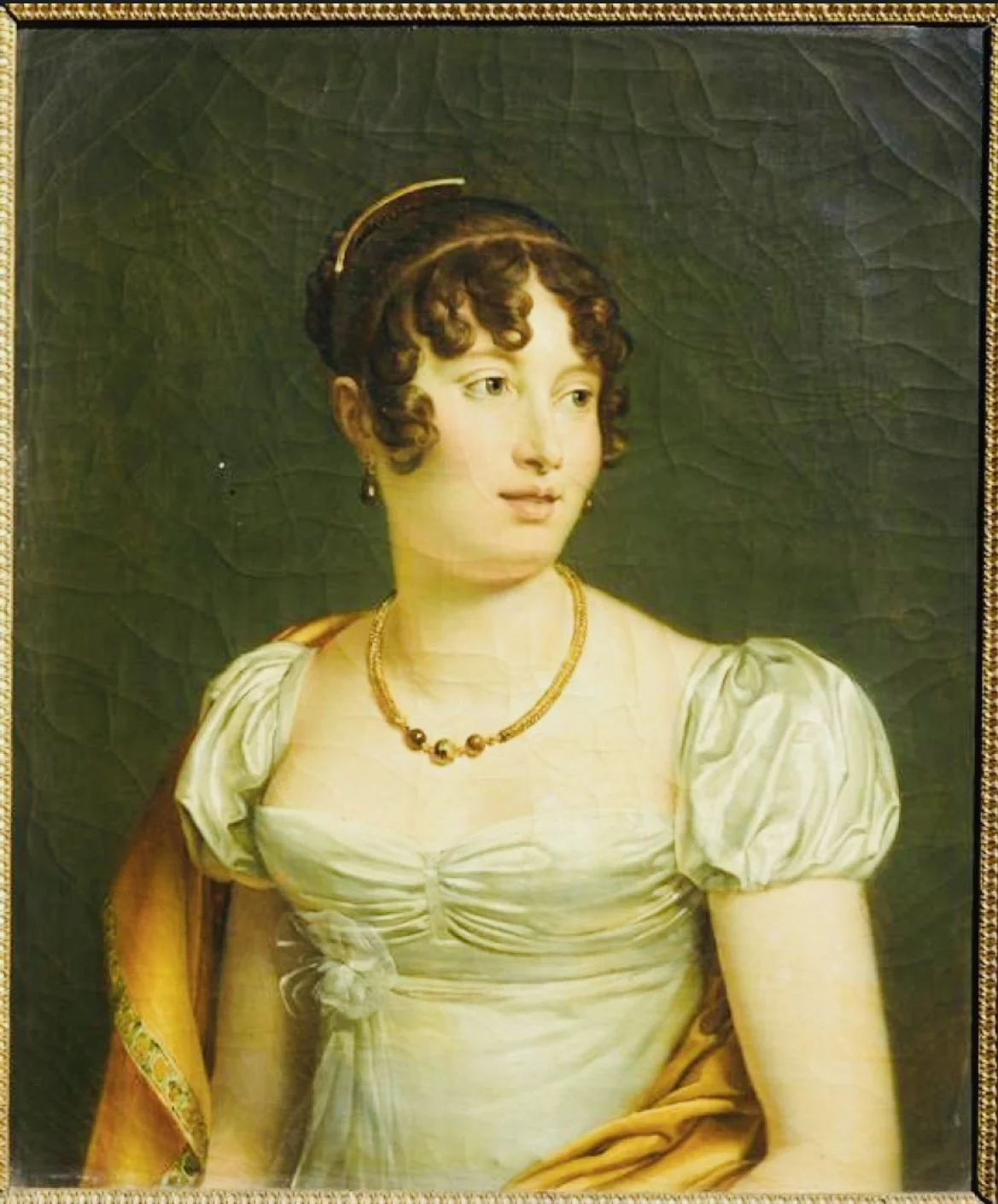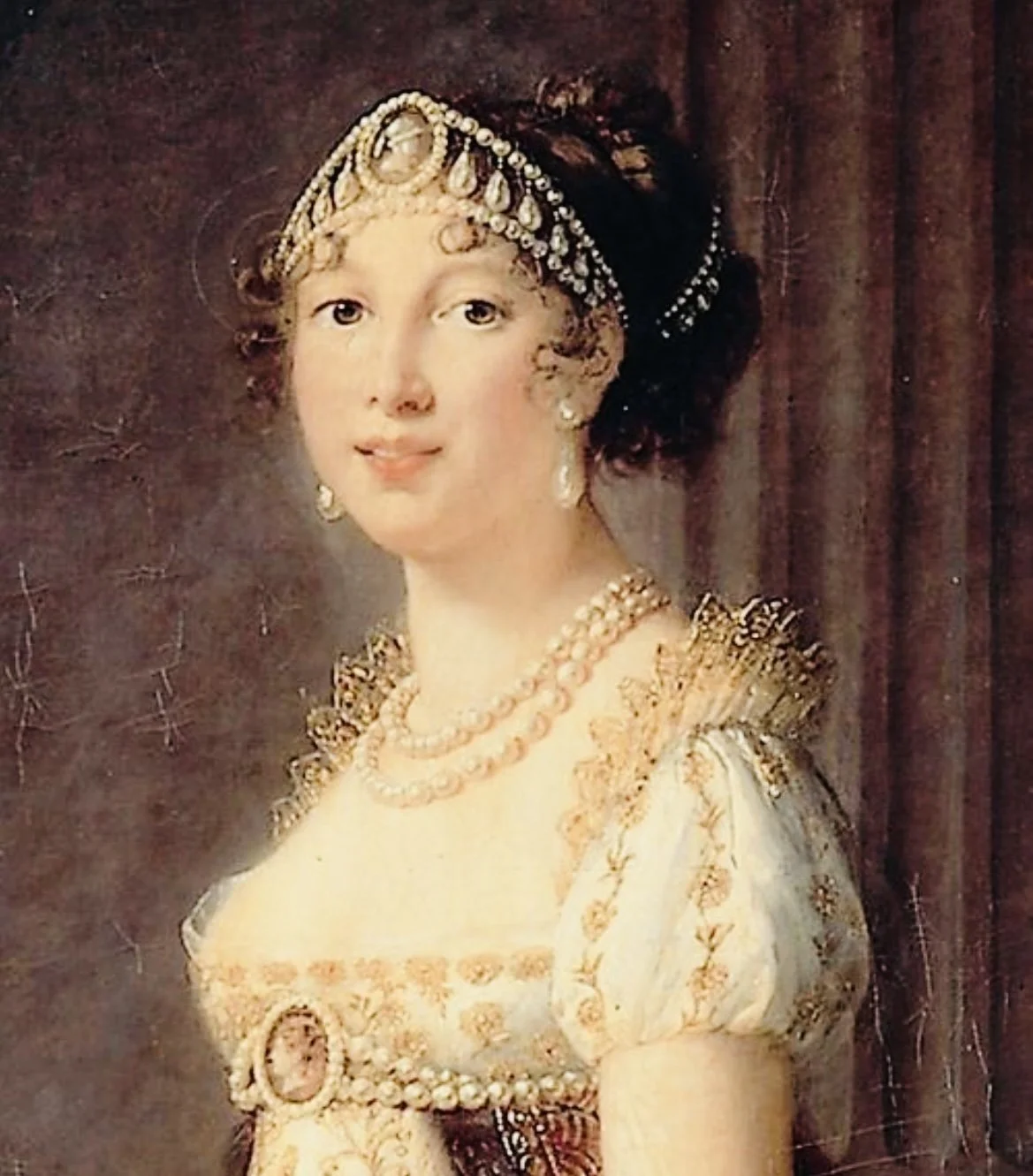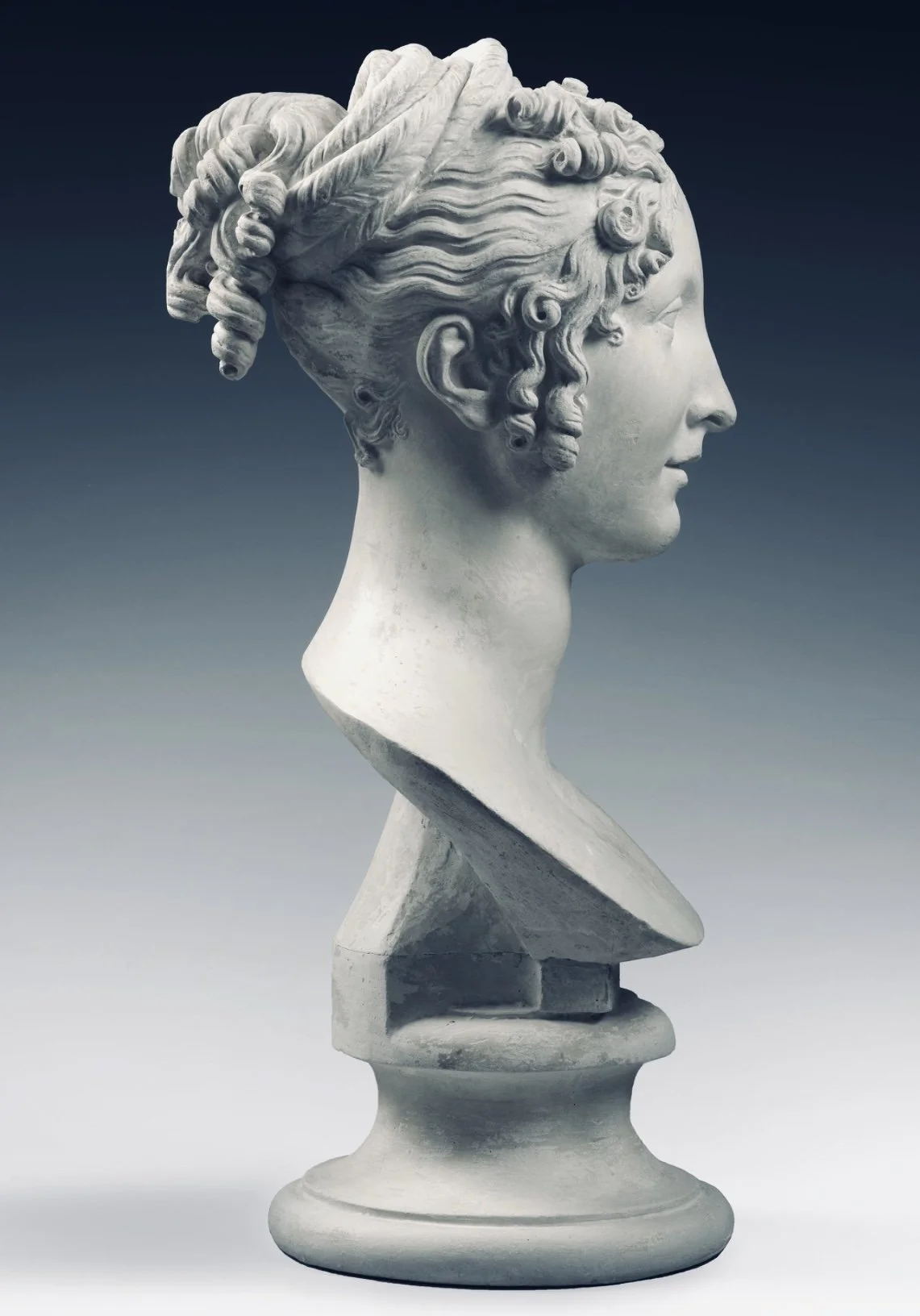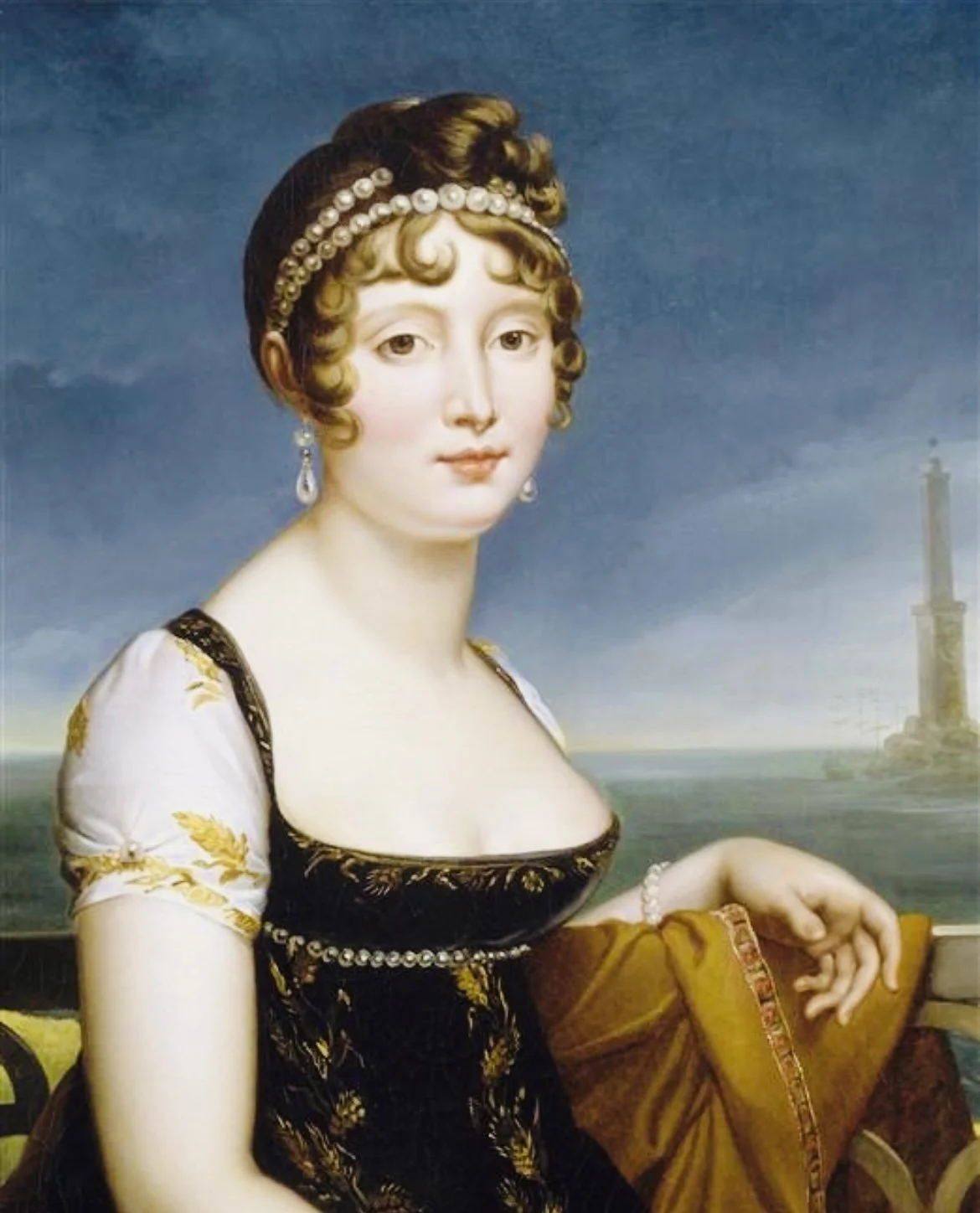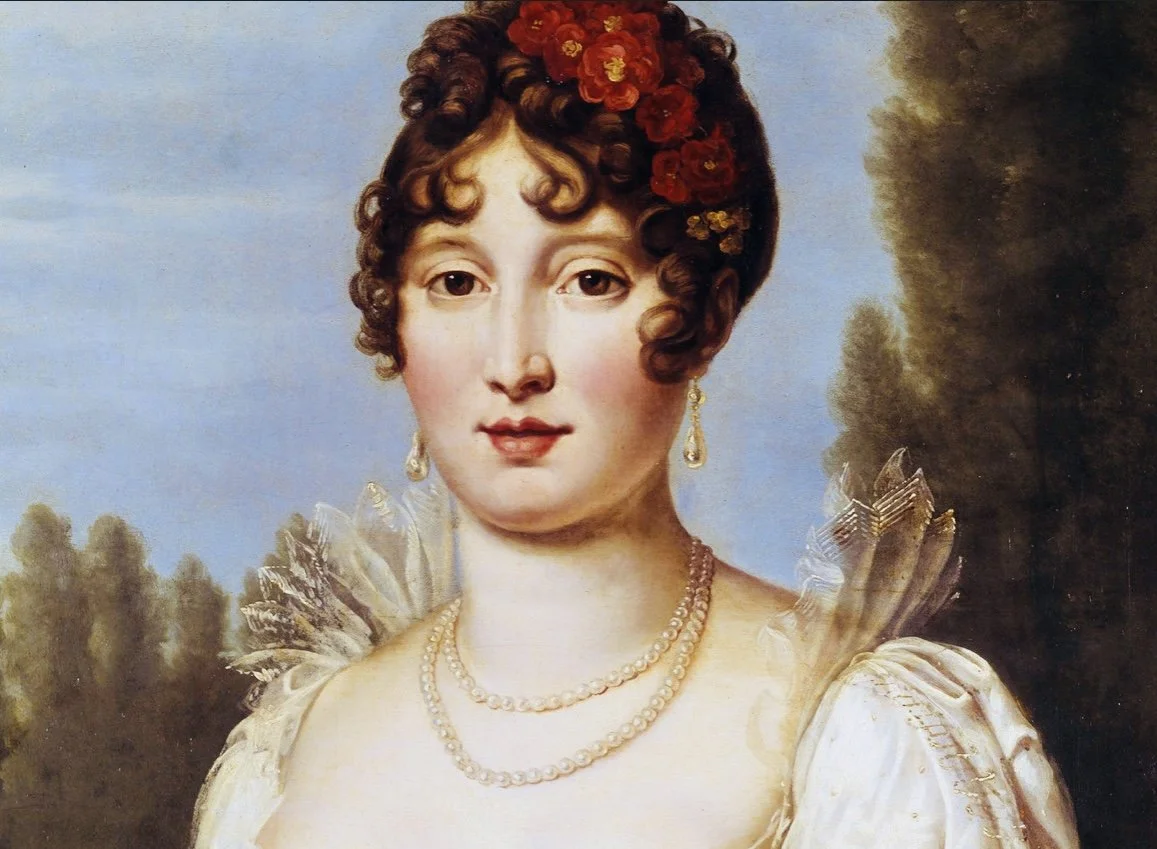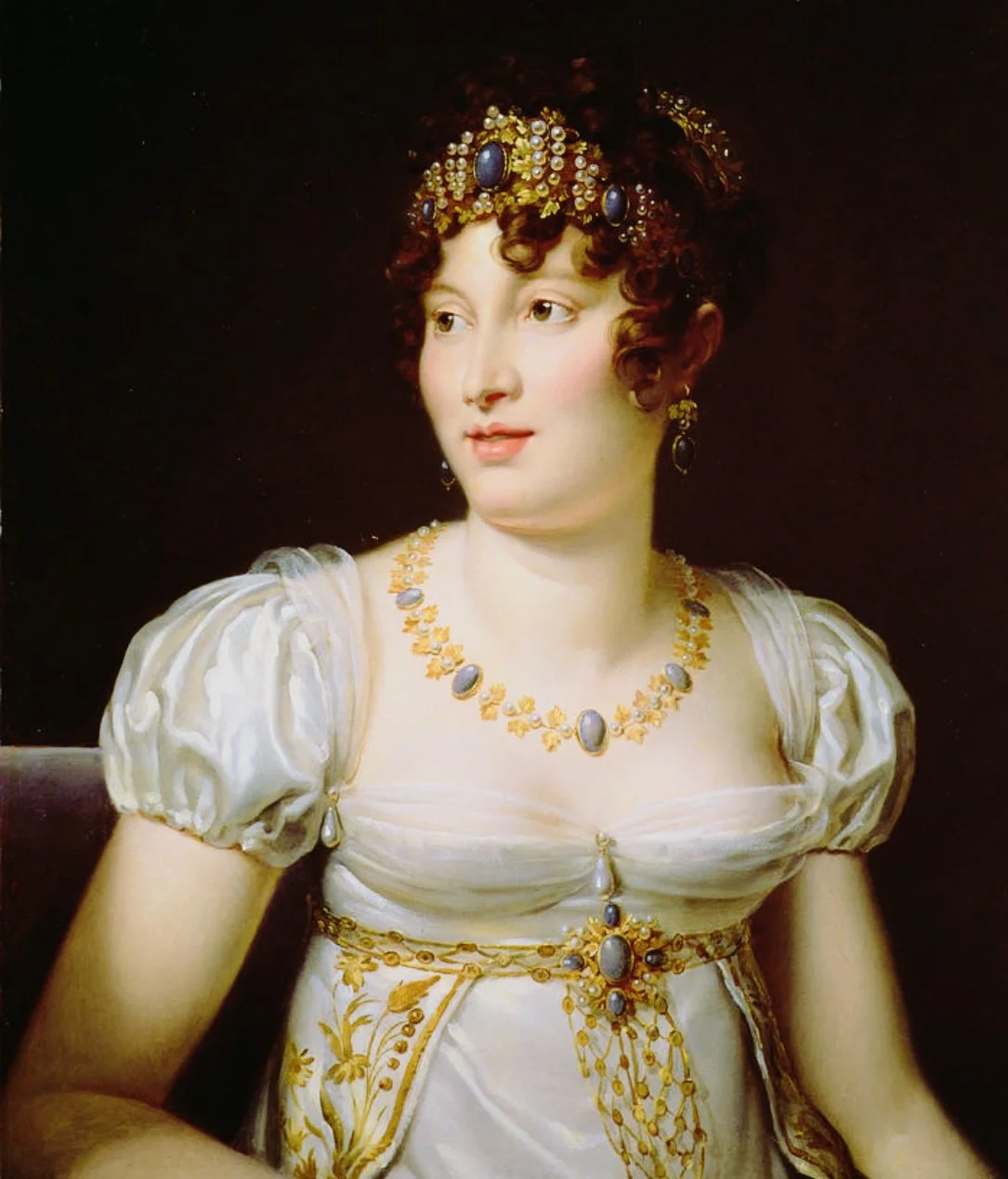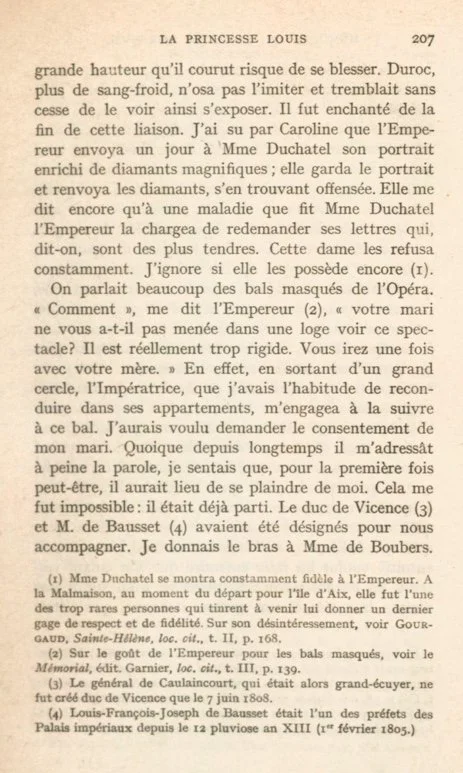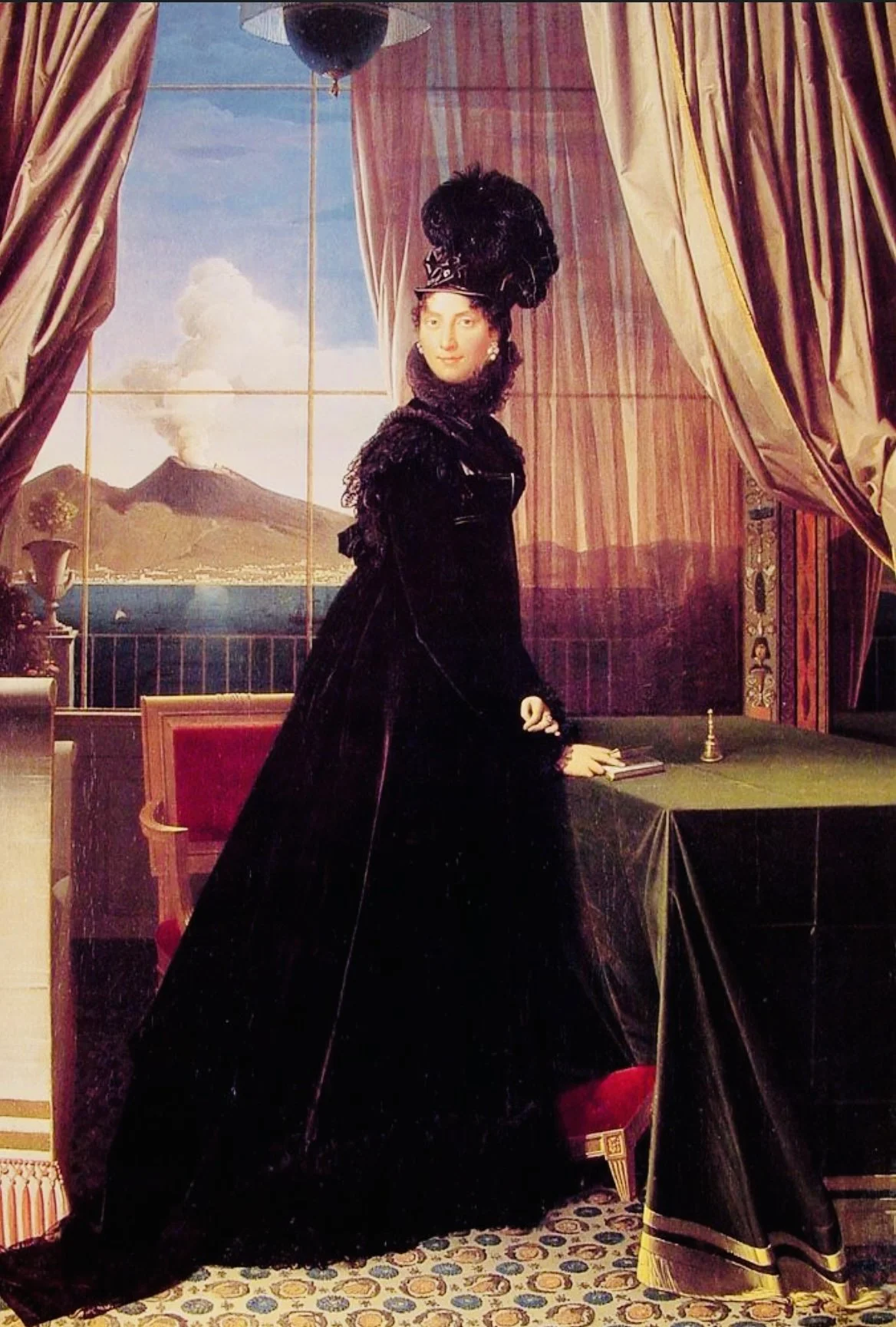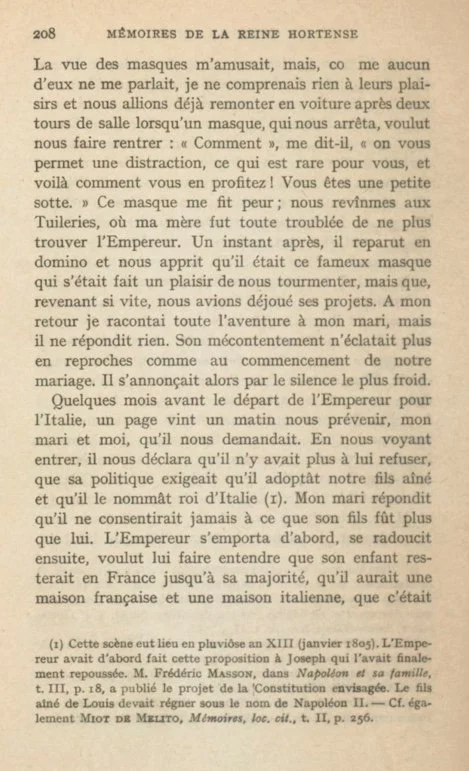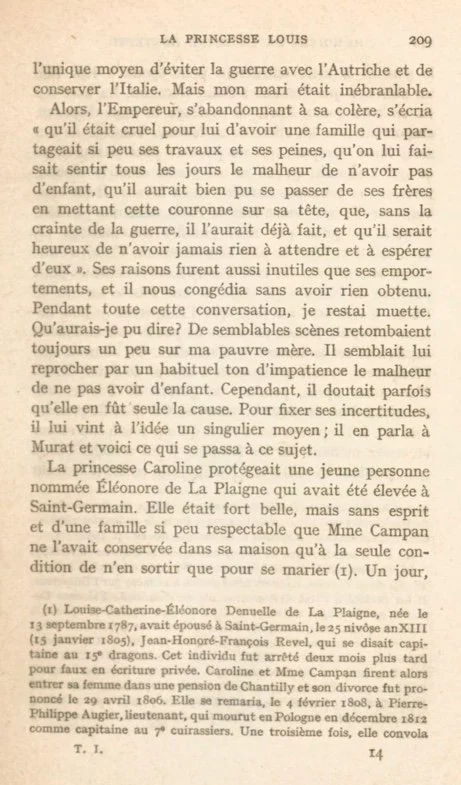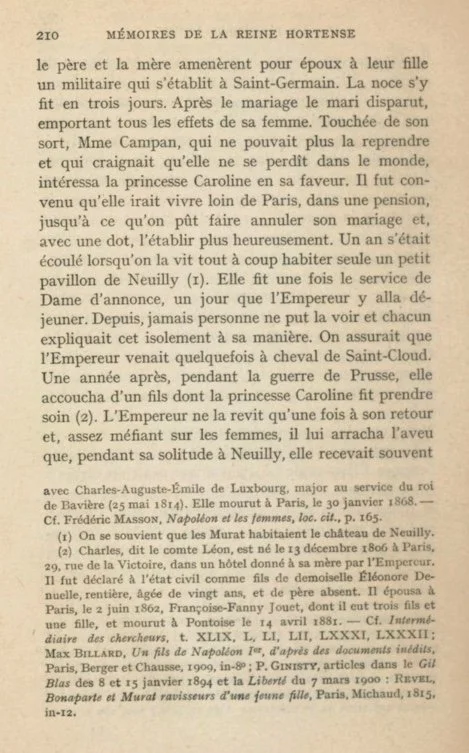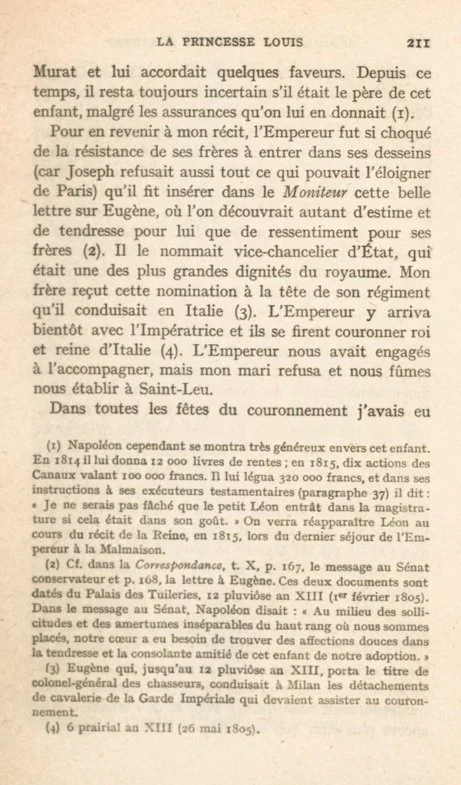Let’s have another look at Hortense’s Memoirs. If you want to read the book it is available for free at the side bar in English and French. Use the widget on the sidebar to translate the text below into pretty much any language.
In this excerpt, Napoleon engages in one of his favorite amusements; disguising himself as a domino and messing with people at a masked ball. Napoleon’s frustration over not being a father leads him into the web of Caroline and Murat.
Hortense’s memoirs continues:
People talked a great deal about the masked ball at the Opera. "What," said the Emperor, "your husband has never taken you in a box to watch one of these spectacles? He really is too severe. You must go some night with your mother."
One evening after a large reception, the Empress, whom I was in the habit of taking back to her apartment, invited me to accompany her to one of these balls. I should have liked to have had my husband's permission. Although he hardly had spoken to me for a long time I felt that for the first time he might now have reason to complain of my conduct. I was unable to reach him as he had already left the palace. The Duc de Vicence and Monsieur de Bausset had been appointed to accompany us. I kept beside Madame de Boubers.
Caroline Bonaparte Murat MacDonald, a kind of real life “Scarlet O’Hara”. Caroline was an “asset” to Napoleon’s enemies and she joined their club as they slowly and cruelly murdered her brother. That’s one of the true stories they pay all of those publicists all that money to hide from the public, even today.
The sight of the masks amused me, but as no one accosted me, I was unable to understand why people found these balls so amusing.
After we had twice walked around the ball-room a man in a mask stopped us and wished us to go with him.
“What”, he exclaimed, "you indulge in an amusement which you so rarely have an opportunity to enjoy and you do not know how to make the most of the occasion? You are nothing but a little fool."
The man with the mask frightened me. We returned to the Tuileries. My mother was much worried to find that the Emperor was not there.
A moment later he appeared wearing a domino and informed us that it was he in disguise who had amused himself by frightening us, but that our hasty return had spoiled his plans.
When I reached home I at once told my husband everything that had occurred, but Louis made no comment of any kind. He no longer showed his disapproval of my conduct by reproaches as he had done when we were newly married.
Now he indicated it by a chilling silence. A few months before the Emperor's departure for Italy a page came one morning to say that he wished to see us. When we arrived, he announced that he insisted we obey him. His plans made it imperative that he adopt our eldest son, whom he would crown King of Italy.
My husband replied that he would never consent to his son's holding a rank higher than his own. The Emperor at first stormed, then became quieter. He wished to make my husband understand that the child would remain in France until he came of age; that he would have two establishments, one French, the other Italian; that, moreover, it was the only means of avoiding war with Austria and keeping Italy. But my husband remained firm. Then the Emperor, giving way to his temper, complained how bitter it was to have a family that helped him so little in his labors and with his burdens. Every day he was made to feel how unfortunate he was not to have had children. His brothers were of no assistance to him and he might as well have placed this new crown on his own head; indeed, were it not that he feared such an action might lead to war, he would have already done so. How happy he would be if only he could bring himself neither to hope nor to expect any aid from his kinsmen.
The Emperor's arguments proved as fruitless as his anger and he dismissed us without having attained what he wished.
During this entire conversation I had not said a word. What could I have said? It was always in the end my poor mother who had to suffer for these scenes.
The Emperor's whole attitude seemed constantly to reproach her for the misfortune of being childless.
Yet at times he was in doubt as to whether this was entirely her fault. The idea occurred to him to employ a singular stratagem to settle these doubts one way or another. He confided it to Prince Murat, and this is what took place.
Princess Caroline had as her protégée a young woman named Éléonore de La Plaigne, who had attended our school at Saint-Germain.
She was very beautiful but not at all clever and of such doubtful parentage that Madame Campan allowed her to remain at school only on the understanding that she would not leave except to get married.
One day her father and mother brought her as a fiancé an army officer who had settled at Saint-Germain.
The wedding took place three days later.
After the wedding the husband disappeared, carrying off with him all his wife's belongings.
Touched by the girl's misfortune, Madame Campan who could not take her back as a pupil and feared that left to herself the girl might succumb to temptation, interested Princess Caroline in the case.
It was arranged that the young woman should go and live some distance from Paris until her marriage could be annulled, and that when this had taken place she should receive a dot and, it was hoped, remarry under better conditions. A year later she was discovered living alone in a little villa at Neuilly. On one occasion when the Emperor went to lunch with Prince Murat, she was present to announce the arrival of the guests. From that moment she vanished, and everyone explained her disappearance as he pleased. People said the Emperor occasionally went to see her, riding over from Saint Cloud.
During the war with Prussia, she gave birth to a son, whom Princess Caroline took care of.
The Emperor only saw her once after his return. On this occasion, being naturally suspicious of women, he made her confess that during her stay at Neuilly she had frequently received visits from Prince Murat and had not been indifferent to him.
From then on, he remained always in doubt as to whether he was really the father of the child although everyone assured him such was the case.
To return to my narrative. The Emperor was so indignant at his brothers' refusal to fall in with his plans—for Joseph also declined anything that would take him away from Paris—that he had the well-known letter about Eugene published in the Moniteur [the official newspaper] which states with equal emphasis how greatly the Emperor is attached to my brother and how angry he is with his own family.
Eugene was made High Chancellor of Italy, one of the highest dignitaries of the State. When my brother received the news of his appointment he was at the head of his regiment, leading his men into Italy. The Emperor and Empress arrived there not long afterwards. They were crowned King and Queen of Italy.
The original French is available below:
Caroline’s transition into joining the ranks of Napoleon’s enemies is complete by the time of this painting by Ingres. Notice the “eye” at the top of the image.

